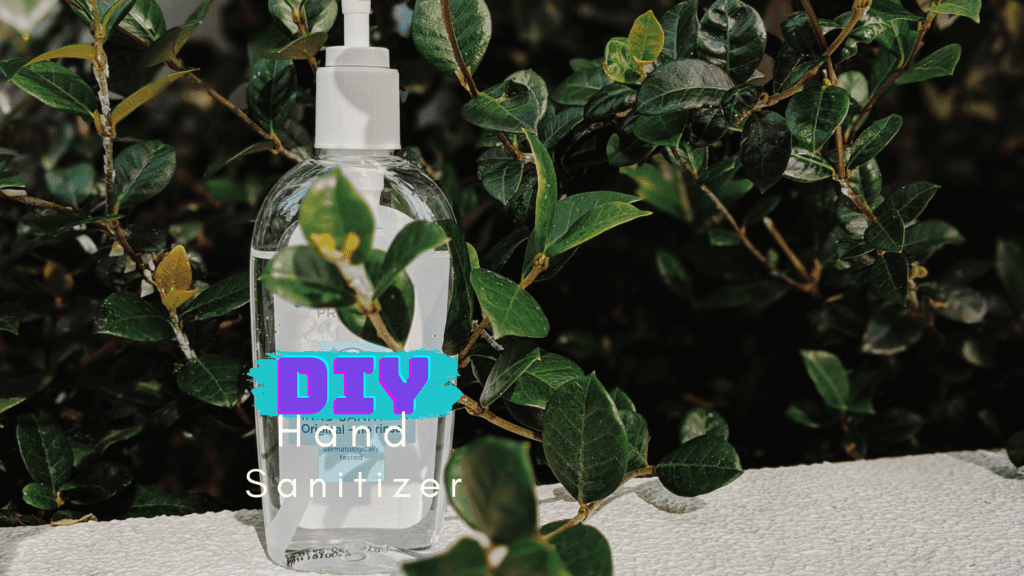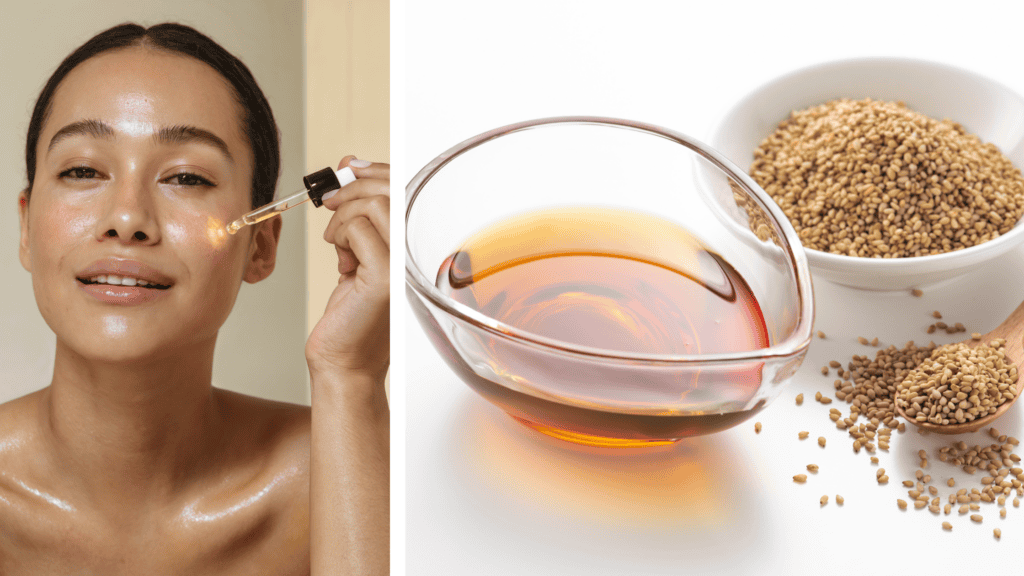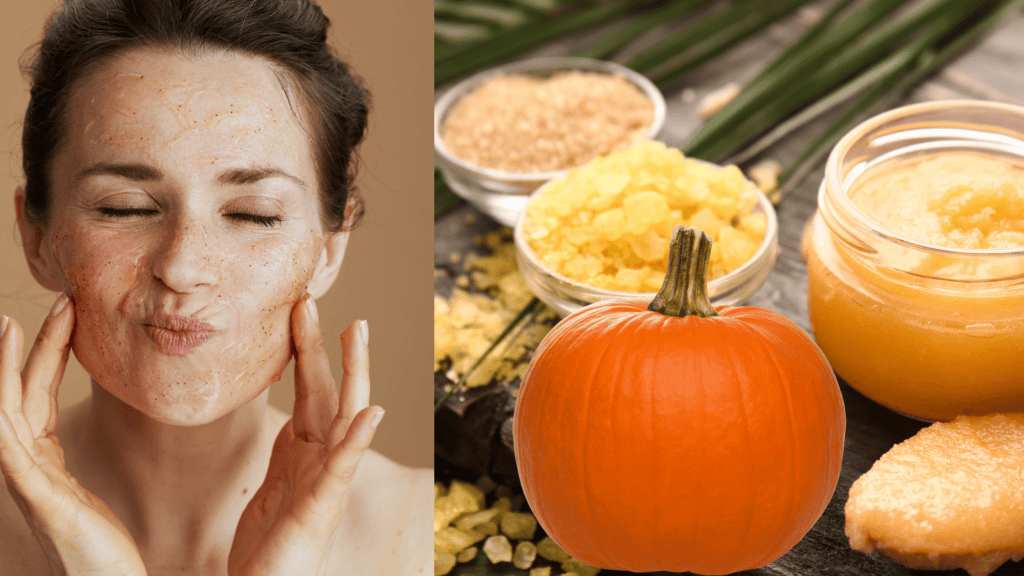With the trauma of the last few years due to the pandemic still on everyone’s minds, taking extra preventive measures to keep you and your family safe is still as crucial as ever. Even before the pandemic hit, with children always needing to eat on the go, I always kept a hand sanitizer spray in my purse.
You still won’t find me without a bottle or two of Dr. Bronner’s organic hand sanitizer spray, and I buy these in bulk as I always give them away when people ask what smells so good. The Lavender and the Peppermint scents are amazing, but it got me thinking: are these hand sanitizers easy to make at home?
With the cost of living crisis soaring and supply chains still not returning to normal, it is good to know how to make some of our favorite products at home. This spray recipe is straightforward and affordable; you can customize the scents to make them extra special.
While washing your hands with soap and water regularly is still the best way to keep germs at bay, you can easily make a DIY hand sanitizer with simple ingredients, an ideal solution for when you’re out and about and can’t get to a bathroom!
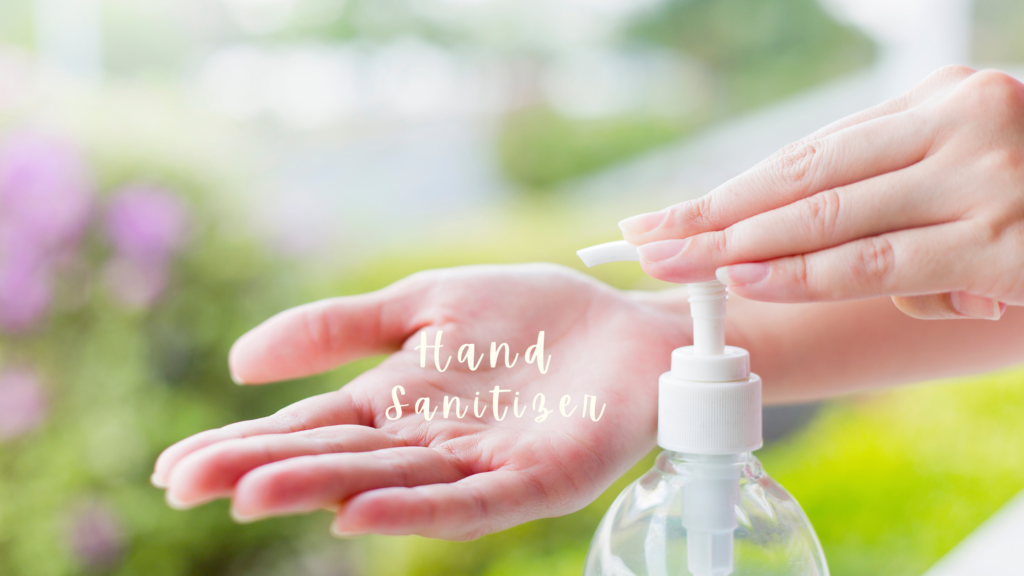
DIY Hand Sanitizer Recipe!
Here’s what you’ll need to make your hand sanitizer:
Ingredients;
- 2/3 cup of Rubbing Alcohol (at least 90%)
- 1/3 cup of Aloe Vera Gel
- 1 TBSP Fractionated Coconut Oil
- Ten drops of Essential oils (optional)
Directions;
Pour 2/3 cup of rubbing alcohol into a freshly washed bowl. Add 1/3 cup of aloe vera gel, one tablespoon of fractionated coconut oil, and 8 to 10 drops of your favorite essential oil (optional).
Essential oils not only smell great, but most have therapeutic benefits and antibacterial, antiviral, and antimicrobial properties; they also contain anti-oxidants and have skincare benefits. Although they are optional, it pays to add some to the mix for these reasons!
Whisk the mixture vigorously to combine all the ingredients, then pour the mixture into a spray bottle using a small funnel. Shake the bottle before using the sanitizer, as the alcohol and aloe vera tend to separate over time. Your hand sanitizer is now ready to use!
Making your hand sanitizer is a great way to keep yourself and your loved ones safe from germs and viruses, and it gives you peace of mind when out and about touching a million things! Store your DIY hand sanitizer in a small bottle and take it everywhere. You can also make larger batches and store them in larger containers for the family.
The Benefits Of Rubbing Alcohol For Hand Sanitizers.
Rubbing alcohol has been used for centuries for medicinal purposes, but it has recently become a popular ingredient in hand sanitizers. The antiseptic properties of rubbing alcohol make it an effective agent for killing bacteria and viruses that can cause illnesses, including influenza, MRSA, and E. coli. In addition, it is also effective at killing off fungi, mold, and mildew.
These properties make it an ideal ingredient for hand sanitizers as it can keep hands clean and free of dangerous microbes.
Another benefit of using rubbing alcohol in hand sanitizers is that it is very affordable and easy to find. Most pharmacies and supermarkets carry rubbing alcohol in various concentrations and sizes, making it cheap and convenient.
Another advantage of rubbing alcohol in hand sanitizers is that it is safe for use in most environments. Unlike other disinfectants, rubbing alcohol contains no harsh chemicals, making it a safe choice for children, pets, and other vulnerable people. It is also non-flammable and has low toxicity.
Use at least 70% solution, or over 90% if adding other ingredients, as it will become diluted.
The Benefits Of Aloe Vera Gel For Hand Sanitizers.
Rubbing aloe vera gel onto your hands is an excellent way to cleanse and protect against germs without harsh chemicals. Aloe vera is a succulent plant with a long history of use in traditional medicine, and its gel is packed with beneficial compounds that can provide a range of benefits.
Aloe vera gel contains vitamins and minerals, including Vitamins A, C, E, and B-complex, and minerals like calcium, potassium, and zinc; these vitamins and minerals help moisturize and soothe skin. For most people, it is also non-abrasive and non-irritating and won’t strip away the natural oils from your skin. Here are some benefits of using aloe vera gel as a hand sanitizer:
- Aloe vera is rich in antibacterial and antiseptic compounds, making it an effective way to kill germs and clean your hands. Aloe vera is known for its anti-inflammatory and antifungal properties, making it a great natural alternative to harsh chemical-based hand sanitizers. It is especially effective against common pathogens such as E. coli, Staphylococcus, and Salmonella.
- Aloe vera gel also contains polysaccharides, which are molecules with antiviral activity. It is also gentle on the skin and very affordable.
Don’t just use Aloe vera for hand sanitizers; this plant has many uses, from sunburn care to DIY face masks!
The Benefits Of Fractionated Coconut Oil For Hand Sanitizers.
Fractionated coconut oil has been gaining popularity in recent years as a natural, effective, and safe ingredient for use in hand sanitizers. This oil is created by fractionating or separating the lauric acid from the other fatty acids in the coconut oil, resulting in a more stable and longer shelf life.
Fractionated coconut oil is an excellent choice for making hand sanitizers because it is an effective and natural antimicrobial agent. It can destroy bacteria and viruses, a significant advantage over traditional chemical-based hand sanitizers.
Fractionated coconut oil is also non-toxic, non-irritating, and non-sensitizing, making it a safe choice for use on the skin. Another great benefit of fractionated coconut oil is its moisturizing properties. The oil helps to keep the skin hydrated and prevents it from becoming dry and cracked. This is important when keeping hands free of germs and bacteria.
Finally, fractionated coconut oil is ideal for use in hand sanitizers because it has a pleasant and natural scent. It has a light, slightly sweet aroma that is not overpowering. It is a natural, safe, and effective ingredient.
The Best Essential Oils For Germs And Viruses.
Essential oils have become increasingly popular as natural remedies for various ailments, including germs and viruses. While there is no substitute for proper hygiene and medical care, these essential oils can help fight germs and viruses and boost the immune system.
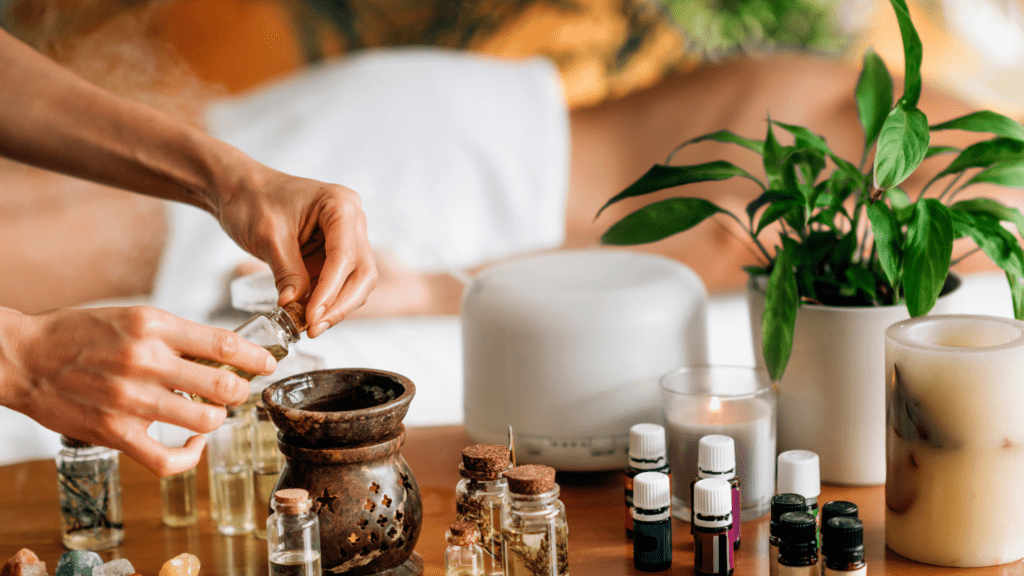
Tea Tree Oil.
Tea tree oil has long been known to fight off bacterial and fungal infections, as it contains a compound called terpinen-4-ol. It also has antiseptic and anti-inflammatory properties and reduces the risk of developing viral infections.
Try Desert Essence Probiotic Hand Sanitizer – Tea Tree Oil & Lavender.
Tea Tree oil is essential in any medicine cabinet or bathroom, as it is versatile and invaluable for the skin and hair! Read the best beauty uses for Tea tree oil here.
Eucalyptus Oil.
Eucalyptus oil is a powerful antiseptic and antibacterial agent that can help fight off viruses and bacteria. It helps reduce inflammation and can also help boost the immune system and reduce the risk of infection.
Try Noshinku Pocket Hand Sanitizer – (Eucalyptus]
Lavender Oil.
Lavender oil is known for its calming, relaxing properties and is excellent for the skin, but it also has antiviral properties. It contains a compound called linalool, which has antibacterial properties that can help reduce the spread of germs and viruses.
Try Olivia Care Hand Sanitizer Infused with Lavender Essential Oils.
Lavender oil is among the most popular essential oils; it is highly versatile for relaxation with excellent hair care and skincare benefits.
Lemongrass Essential Oil.
Lemon grass essential oil has antiseptic, antiviral, and antimicrobial properties that help to reduce the spread of bacteria, fungi, and viruses. It is effective against a wide variety ofStaphylococcuseffective against E. coli, Salmonella, and Staphylococcus. It is also effective against other bacteria, such as Streptococcus and Enterococcus.
Try ALO Aloe Sanitizing Hand Mist
Peppermint Oil.
Peppermint oil has long been used to treat various illnesses, including headaches, digestive issues, and coughing. It also has antiseptic and antiviral properties, effectively fighting germs and viruses.
Try; everyone for every body Hand Sanitizer Spray, Peppermint, and Citrus.
Peppermint oil has a fantastic refreshing scent, making it ideal for many uses. Don’t forget to add it to your hair care routine; it is also known for its hair growth properties.
Citrus Essential Oils.
Citrus essential oils have a variety of uses, from adding fragrance to a room to helping to fight germs. When it comes to fighting germs, citrus essential oils are particularly beneficial. Citrus essential oils are naturally antibacterial, antiviral, and antifungal, which makes them perfect for killing germs. When using citrus essential oils to fight germs, it’s important to dilute them in a carrier oil first.
The main component of citrus essential oil is limonene. This compound helps to inhibit the growth of bacteria, fungi, and viruses on surfaces, including countertops and other surfaces in your home. It can also penetrate the cell walls of bacteria and viruses, making them less able to cause harm.
Try Palma de Salus – Hydrating Hand Sanitizing Serum
Citrus essential oils are known for their uplifting, happy scent; make this rollerball blend to lift your spirits!
Undiluted essential oils can be potent and cause skin irritation. Please ensure not to put them neatly on the skin, but use carrier oils and other ingredients to make them less abrasive.
These are some of the best essential oils for fighting germs and viruses. All these essential oils have potent properties that can help reduce the spread of germs and viruses and keep the body healthy. Consult a qualified healthcare practitioner to ensure safety and effectiveness before using any essential oil.
This post contains affiliate links. If you purchase through these links, we may earn a small commission, which will not affect your sales.
Glowitgreen.com is a member of the Amazon affiliate link program.

